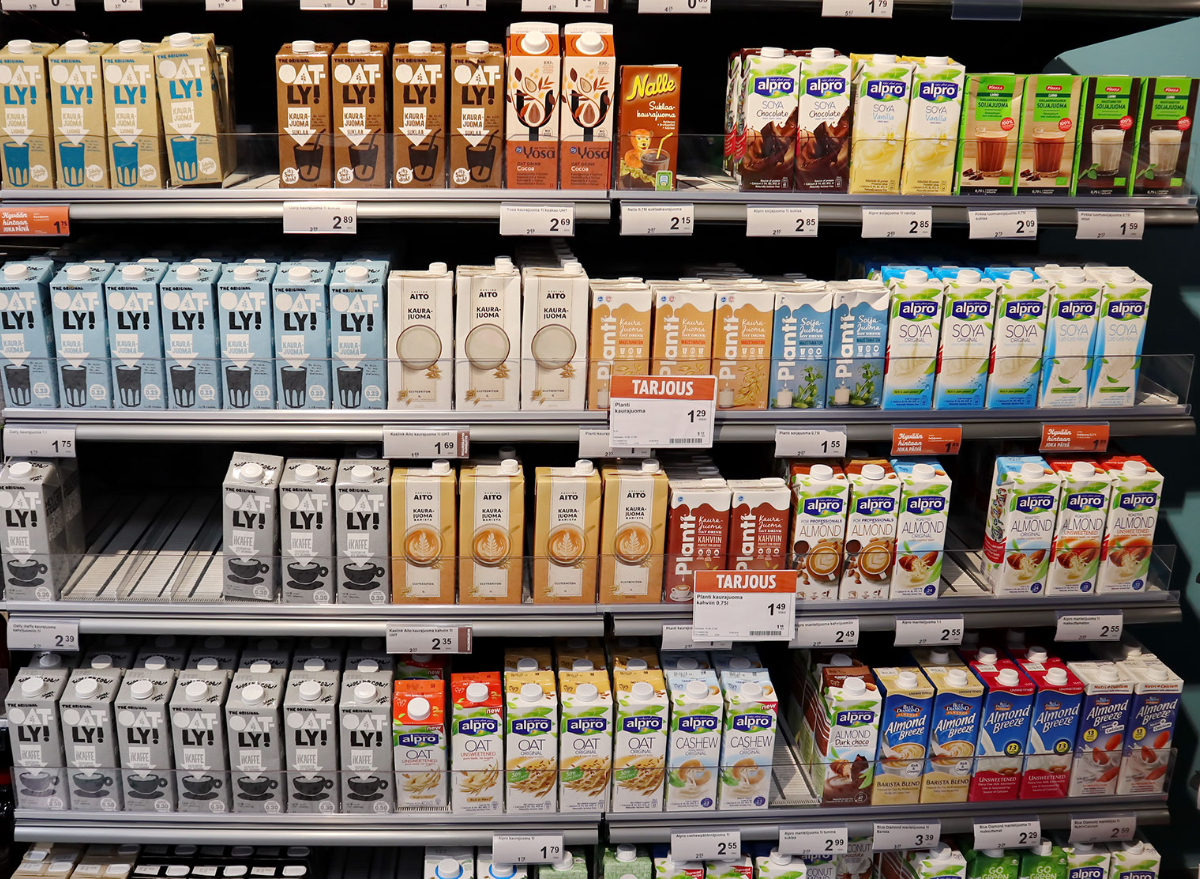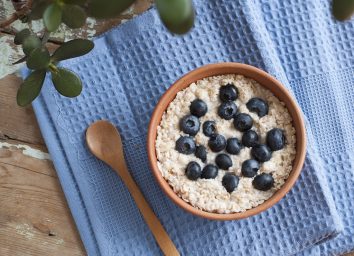This Popular Oat Milk Is Being Criticized for Its Ingredients

This year, Oatly entered the scene with a splash and quickly grew to be so in-demand, some customers still can't get their hands on it. Oatly was a hit for plant-based milk lovers, after all, It's milk that's made of oats. What could possibly be purer than that?
However, with the brand rumored to be going public with an IPO soon, some critics have been taking their own close look at Oatly's ingredients to find that if you really want to be a conscious consumer, you may need to think twice before buying into the hype about this dairy alternative.
GQ recently noted the "halo of virtue" around Oatly oat milk, whose nutritional controversies have been highlighted over the past year by various writers, including Jeff Nobbs and Nat Eliason. Nobbs noted how a close look at Oatly's ingredients list reveals the use of rapeseed oil "to give it a milk-like richness." One concern with this is that the oft-questioned canola oil is a version of rapeseed oil that contains a lesser amount of monounsaturated omega-9 fatty acid.
No matter how you look at it, rapeseed oil is a vegetable oil—which arguably, by definition, creates some conflict over how healthy Oatly really is.
Also, per Nobbs, the carbohydrates in Oatly warrant some questioning—he asserts: "A 12-ounce glass of oat milk (the amount in a medium latte) has about the same blood sugar impact as a 12-ounce can of Coke." GQ weighed in with a breakdown of this argument that's pretty strong:
What's clear is that the process that turns oats into oat milk transforms complex starches into maltose, a simple sugar. More refined carbohydrates, like maltose, are worse for you than complex carbs. They cause a bigger rise in blood glucose and insulin levels, which you don't want. This can be quantified by a measure called the glycemic index—higher numbers are bad.
However, others can argue that there are other clean and whole foods that can have the same effect on blood glucose. As GQ says, "The bigger problem with Coke is that it has no nutrients, whereas Oatly, while not so nutritious, has fiber, vitamins, and a little unsaturated fat."
Even though the amount of water that's used to make oat milk has been said to render this beverage a slightly more environmentally-friendly, plant-based milk than some nut milks—and even though there are impressive health implications to going more plant-based—in the end, this is a reminder how helpful it is for genuinely conscious consumers to know what you're buying. Sign up for the Eat This, Not That! newsletter for the daily grocery news you need.
Also, check out:








